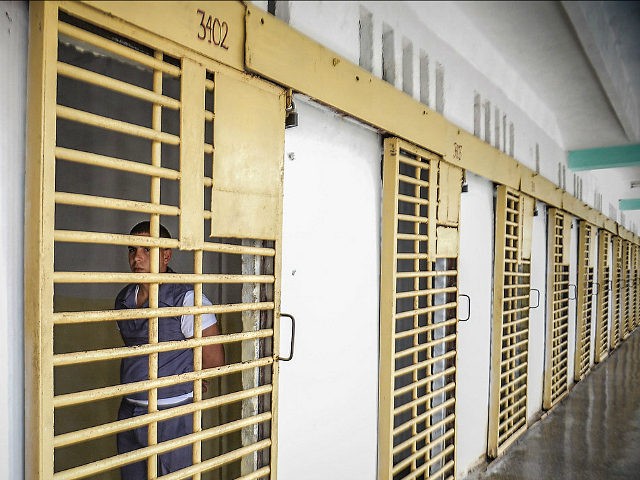The head of the Patriotic Union of Cuba (UNPACU), one of the island’s largest pro-democracy groups, accused the government of attempting to taint the food at the group’s headquarters with a “noxious substance,” the latest in a string of similar claims by dissidents both in and out of prison.
José Daniel Ferrer tweeted on Tuesday that a Cuban police officer he identified as “Major Lázaro” had asked a dissident to “place a noxious substance in the food at the UNPACU headquarters” in eastern Santiago de Cuba.
Mayor ¨Lázaro¨ de policía política en Santiago de Cuba pidió a Yilian Cebreco echar sustancia nociva en comida en sede de UNPACU
— José Daniel Ferrer (@jdanielferrer) June 27, 2017
Ferrer has not elaborated on the accusation. In response to another Twitter user, however, he accused the Cuban government of “injecting toxic substances and growing bacteria that cause severe infections” for use against political prisoners.
Inyectan sustancias tóxicas e inoculan bacterias que causen severas infecciones. Su arsenal diabólico es muy amplio y variado
— José Daniel Ferrer (@jdanielferrer) June 27, 2017
UNPACU is one of the most active anti-communist groups on the island. The Cuban Commission for Human Rights and National Reconciliation (CCDHRN), an NGO that tracks politically-motivated arrests on the island, estimates that about half of the political prisoners behind bars in Cuba are members of UNPACU.
While the government routinely commits acts of violence against its members, they are typically more at risk during events in which international media has its eyes on Cuba. In 2015, for example, Cuban police arrested 142 UNPACU members during Pope Francis’s visit to the island. One of those members, Zaqueo Báez, was beaten and arrested in front of Pope Francis. The Pope later denied that he had any information regarding politically-motivated arrests.
UNPACU’s media advocacy is currently largely focused on member Jorge Cervantes, who is currently on the 36th day of a hunger strike. Cervantes’ partner Gretchel Alfonso told reporters Tuesday that Cervantes’ health has deteriorated rapidly and he is at risk of severe kidney damage. Alfonso told Martí news that the water guards had given him “is hot and tastes like chlorine,” but they have not allowed her to bring him water from home. Cervantes is also under arrest for “disrespect.”
The latest accusation of poisoning follows an incident in which some UNPACU members began refusing to eat prison food following the death of Hamell Santiago Maz Hernández in February. Maz Hernández, awaiting trial behind bars for the crime of “disrespect” to the Revolution, died in February after serving eight months in prison. The government did not specify the motives of his death, leading to suspicions that he had been poisoned. Five other UNPACU members at the prison went on hunger strike following his death for fear of being poisoned.
Other dissidents have also accused the government of attempting to use drugs or other unknown substances to subdue them. In December, the Cuban visual artist Danilo Maldonado Machado, known by his artistic name “El Sexto,” claimed that prison guards were forcing him to take sleeping pills to keep him from shouting anti-Castro slogans from within his prison cell.
El Sexto is the only known person to have celebrated the death of Fidel Castro in November on the streets of Havana, broadcasting his joy in a Facebook Live video. Following immense pressure from the international human rights community, the Cuban government freed El Sexto, who is currently working on human rights advocacy projects in Florida.
The dissident Daniel Llorente, who does not belong to any anti-government organization, has also claimed that government officials have tried to force him to take unidentified “pills.” Llorente was arrested in March for interrupting the government’s Marxist May Day celebration, running into the parade waving an American flag. He has been placed in a mental hospital for, according to his son, “believing in God.” “They want to give him pills, but he says he will not take them,” his son told Martí Noticias this month.

COMMENTS
Please let us know if you're having issues with commenting.